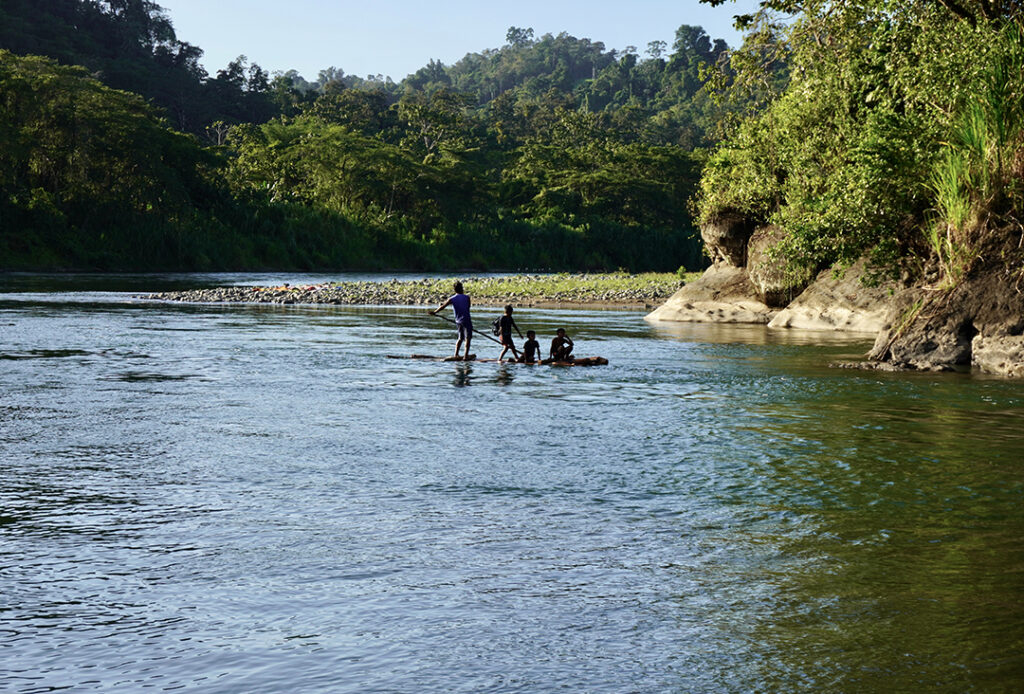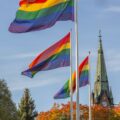The paradox of freedom of religion for Indigenous communities
The paradox of freedom of religion for Indigenous communities
Freedom of religion is a basic human right, but so is practising one’s culture. This poses real challenges for lawmakers, as Frazer MacDiarmid explores.
This weekly comment was written by Frazer MacDiarmid and reflects his personal analyses and opinions, rather than those of EARS.
Christian Solidarity Worldwide, a Christian advocacy group, is calling on government authorities to do more to ensure freedom of religion or belief (FoRB) among Indigenous communities. An alarming new report shows Indigenous individuals are being denied the protections due to them under the United Nations human rights charter.
How can the right to belief coexist alongside the right for cultures to be protected? To resolve this tension, we must unpack differing ways of understanding the essence of identity. I also offer my own perspective from working in Indigenous relations in Aotearoa New Zealand.
Belief and Belonging
Christian Solidarity Worldwide, a UK-based advocacy group, has published a report entitled Belief and Belonging.[1] It highlights potential violations of human rights among Indigenous communities in four countries: Vietnam, Colombia, Mexico, and India. Individuals within these communities are being treated as “a second class of citizen,” for whom their basic FoRB is not protected.[2]
Responsibility for these violations varies between countries. Government policy and (in)action are directly linked to FoRB violations in Vietnam and India. In Mexico and Columbia, local authorities and Indigenous community leaders share responsibility for FoRB violations.[3]
Mexican law states that the implementation of collective cultural rights must uphold an individual’s constitutional rights, though courts rarely intervene in cases involving FoRB. Meanwhile, in Columbia, the courts have ruled that Indigenous lands are exempt from the constitutional requirement to protect FoRB.[4]
In all four countries, the researchers noted “a failure or refusal to recognise that individual Indigenous people hold the same universally protected fundamental rights that belong to every human being.”[5] The report challenges “the common and dangerous misconception that collective cultural rights are either incompatible with, or should take precedence over, the right to freedom of religion or belief.”[6]
Freedom of religion breaches in Indigenous communities
Let’s look at an example of this human rights dilemma. In Colombia, a court ruling prioritised the collective cultural right to protect traditions over individual rights to FoRB. Some Indigenous leaders have interpreted this to mean that non-traditional religions (such as Christianity) should not be permitted on Indigenous lands, and have exiled their followers.[7]
This has led to some individuals being forced to make a choice between their faith and their family, home, and heritage as an Indigenous person. Some who choose to keep their non-traditional faith are being alienated from their Indigenous identity, and are denied rights such as education, right to work and leadership opportunities.[8] All the people surveyed stated they wished to be recognised as Indigenous, regardless of their religious beliefs.[9]
The report acknowledges the history of violence, discrimination and exploitation that Indigenous cultures have been subject to throughout history and to this day.[10] However, this history of oppression should not be used to ignore or excuse human rights violations by those very communities upon their own members. To do so would be to further entrench marginalisation and violence against Indigenous people.[11]
Belief and Belonging mentions the “considerable attention” Indigenous groups have received from human rights and other advocacy groups, who aim to protect these communities from improper influence or coercion.[12] The report does not question the importance of this work. However, it warns that in their efforts to support Indigenous collectives, authorities are effectively not upholding their obligations to individuals.
Paths forward for Indigenous FoRB
The law must be able to safeguard the rights of individuals, and ensure that these are not occluded by collective rights. However, it is through dialogue, not legislature, that human rights breaches will be stopped.
Western groups, including those aligned with non-traditional religion or atheism, must come to understand why belief in Indigenous religion is considered a criterion of Indigenous community membership. Simply stating that this is not correct will not change minds; nor is imposing UN regulations upon Indigenous communities a solution sensitive to their right to autonomy. The answer may involve parallels between FoRB campaigners and the horrors of colonisation Indigenous communities have suffered.
Conversely, Indigenous groups should come to understand why freedom of belief is considered a basic human right by Western groups. This will involve multiple types of engagement and at multiple levels, from community leadership down to individual members.
Report useful but limited
At the heart of this issue is a conflict between a Western broadly individualistic approach to rights, and an Indigenous approach that generally favours the rights of the collective ahead of the individual. The question must be asked: is it appropriate for Western groups to be passing judgement on non-Western societies? Or is this a form of colonisation? Perhaps the ideological, philosophical chasm between the two is too wide.
Belief and Belonging makes no claim to be comprehensive. It surveyed a small sample of Indigenous individuals in four countries.[13] The report requires further research to explore other countries with Indigenous populations (e.g. Canada, Australia), and utilise larger sample sizes. Much more thinking and engagement is required.
The view from Aotearoa
I write this from Aotearoa New Zealand, where I work in improving the relationship between the country’s Indigenous population (Māori) and the State. There is widespread and increasing support for expression Māori culture and language in the country.[14] Māori culture is an inseparable part of New Zealand culture. Despite persistent inequities across almost all measures, New Zealand is often spoken of as the best country to be Indigenous.[15] [16]
Aotearoa serves as an example of communities where non-traditional belief is not understood to minimise one’s Indigenous culture/identity. You can be a Christian, an atheist, or a Buddhist, and still identify fully as Māori.[17] [18] In fact, very soon after European settlement, many Māori adopted the colonisers’ Christian faith and adapted it to their community’s needs and identities.[19]
New Zealand’s ‘success’ in freedom of belief among its Indigenous population is due to a range of historical and social factors, not all of which are implementable in other contexts. However, this example of ‘intersectionality’ may serve as a model for how other countries can begin to integrate Indigenous peoples and non-traditional religions.
This weekly comment was written by Frazer MacDiarmid and reflects his personal analyses and opinions, rather than those of EARS.
Our team of analysts conducts daily research on religion and society. In the past month, the topics of conflict and religious institutions were trending. Find out their relationships on the EARS Dashboard.
Sources
[1] CSW: Belief and Belonging: Indigenous identity and freedom of religion or belief
[2] Belief and Belonging, p. 67.
[3] Belief and Belonging, p. 4.
[4] Belief and Belonging, p. 4.
[5] Belief and Belonging, p. 4.
[6] CSW: New report explores intersection between freedom of religion or belief and indigenous rights
[7] Church Times: Indigenous populations treated as ‘second-class citizens’ say Christian Solidarity Worldwide
[8] Belief and Belonging, pp. 20-21.
[9] Church Times: Indigenous populations treated as ‘second-class citizens’ say Christian Solidarity Worldwide
[10] Belief and Belonging, p. 4.
[11] Belief and Belonging, p. 4.
[12] Belief and Belonging, p. 67
[13] Belief and Belonging, pp. 68-69.
[14] Stuff: How te reo Māori is becoming a normalised aspect of popular culture, and why it matters
[15] Guardian: Māori might be the ‘luckiest’ Indigenous people – but that’s not down to New Zealand exceptionalism
[16] The Conversation: Why the Indigenous in New Zealand have fared better than those in Canada
[17] RNZ: Celebrating being Māori and Catholic






